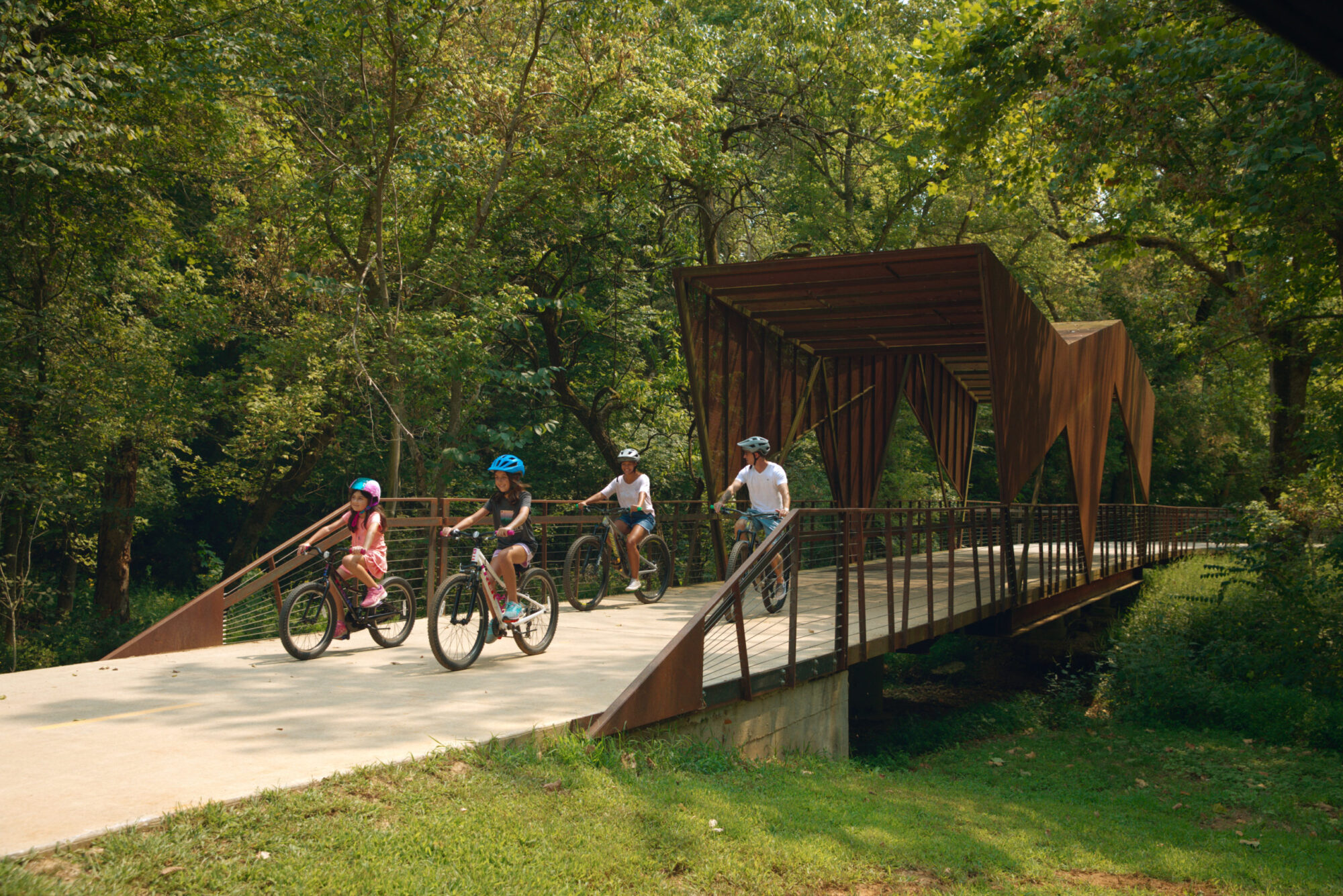Northwest Arkansas recycled more than 41,000 tons of material in 2021, according to a new report from the Northwest Arkansas Council.
Those collections included typical recyclables, like aluminum cans and cardboard, but also more unusual materials such as used tires, electronics and food and yard waste, all of which can be recycled and reused in some way. The report by the Council’s NWA Recycles program is the first to tally collections from the Benton County and Boston Mountain solid waste districts and from a dozen cities with public recycling programs.
“Recycling programs across the region take great care to safely collect recyclables, conserve natural resources and put these materials back to use, including by businesses right here in Northwest Arkansas,” said Dan Holtmeyer, the Council’s recycling program manager. “This report gives a thorough accounting of the programs’ collective efforts to keep more waste out of landfills.”
The programs tallied range from E-Waste Warriors, a volunteer group of Rogers high school students that collected 5 tons of old electronics, to the city of Fayetteville, which collected more than 13,000 tons in its recycling and composting programs. Among the report’s findings, the region in 2021 recycled:
- 300 tons of electronic waste.
- 1,000 tons of aluminum, steel and other scrap metal.
- 1,000 tons of glass bottles and jars.
- 9,000 tons of yard and food waste for composting.
- 14,000 tons of cardboard and paper.
Those figures in reality are higher, since many community programs don’t track the weights of specific materials.
NWA Recycles is a joint effort by the Northwest Arkansas Council and the Benton County and Boston Mountain solid waste districts that launched last year with support from Walmart. Its aim is to coordinate and improve local recycling services, which has become a major priority for the growing Northwest Arkansas region. A public infrastructure survey from the Council earlier this year found more than 80 percent of respondents think more recycling is important to the area’s future and are willing to recycle more in their daily lives.
A major challenge is a lack of consistent data, making it difficult for residents, community leaders and businesses that might use recycled materials in their products to see what the region’s programs are doing.
“Recycling can help build a more circular economy that reuses valuable materials that would otherwise be wasted, conserves limited landfill space and sustains local jobs and businesses,” said Rachel Spencer, Walmart senior manager for community resiliency. “Regional coordination is the key to improving recycling efforts in NWA, and this report reveals the need for more collaboration in collection data, measuring progress and setting recycling goals. With robust partnerships, we can build public trust in the region’s recycling programs and attract recycling companies’ interest – ultimately leading to more and better recycling in Northwest Arkansas.”
The annual report is the first in an ongoing effort that will likely improve over time, by including more data from private, commercial recycling that is not accounted for in public programs, as well as more information about non-recyclable materials captured by recycling programs. NWA Recycles will continue working with the waste districts and other stakeholders to help strengthen local programs and their available data.
Click here for the full report.
To learn more about community recycling programs, visit NWARecycles.org.
























